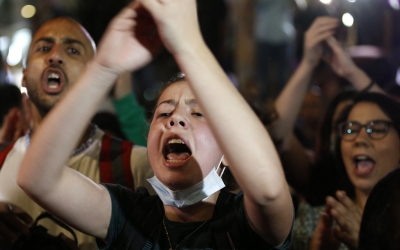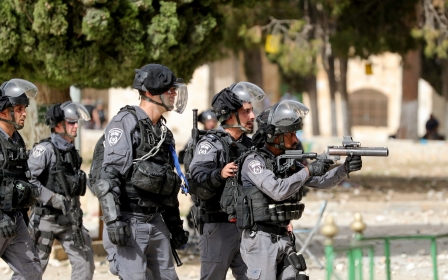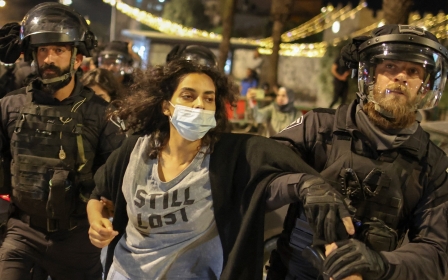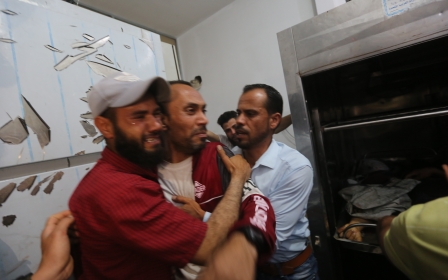Al-Aqsa attack: Boris Johnson's silence over Israeli violence is a disgrace
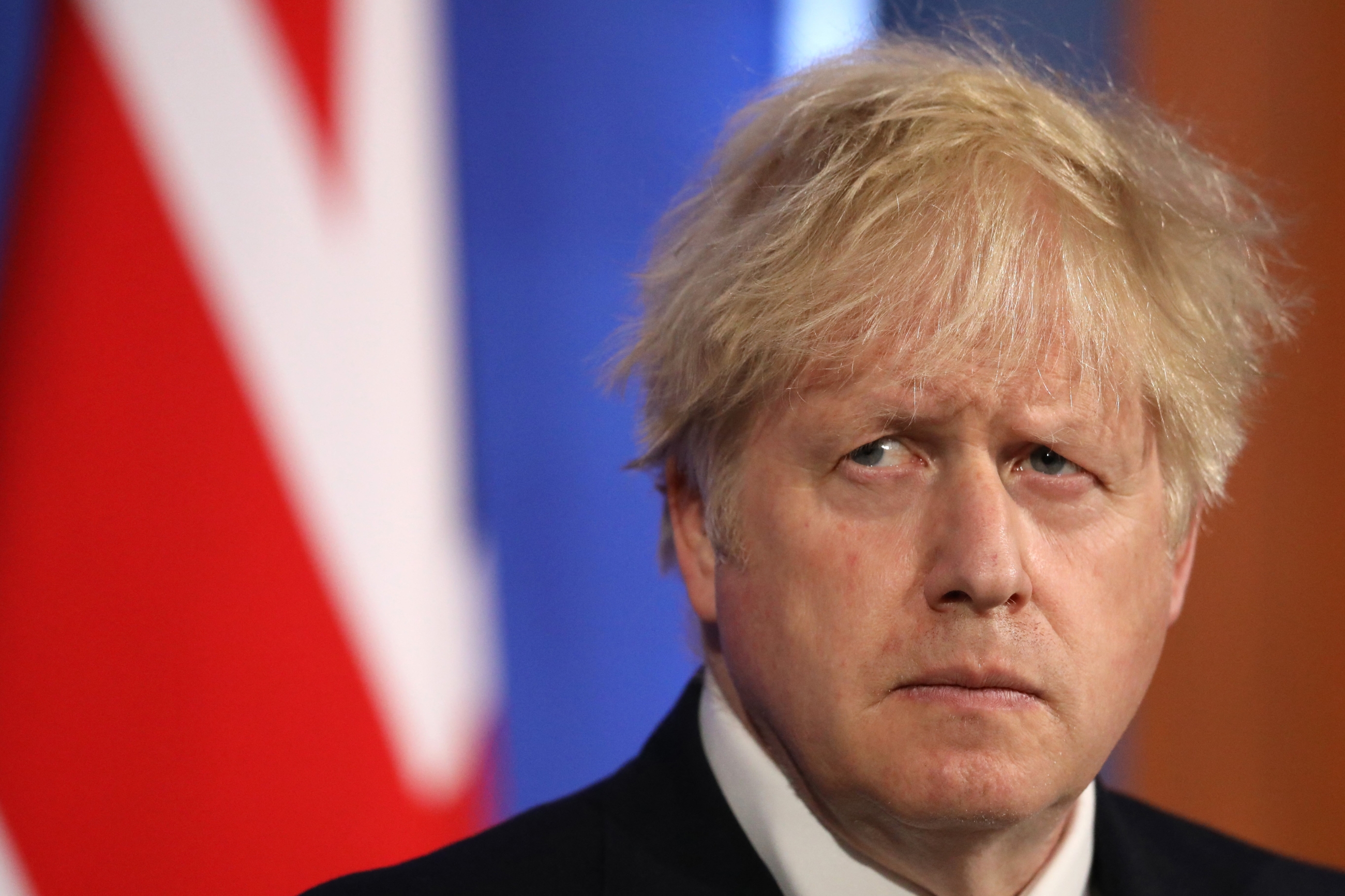
It’s been less than a week since British Prime Minister Boris Johnson ordered two patrol vessels to the Channel Islands port of St Helier in an escalation of tensions with France.
Amid front-page banner headlines and media fanfare, government sources accused Paris of sinking lower than Jersey’s Nazi occupiers during the Second World War. According to a government source quoted by the Telegraph: “At least when the Germans invaded they kept the lights on.”
We are witnessing what could become the most dangerous crisis in the Middle East for years. Yet, there has been no serious response from the Johnson government
Welcome to what passes for foreign policy in Johnson’s Britain. Compare and contrast this with the British prime minister’s reaction to the terrible events in Jerusalem over the past few days.
Israeli forces firing rubber-coated metal bullets and dispensing tear gas invaded al-Aqsa Mosque, the third-most sacred site in Islam. Yet, the British prime minister had nothing to say.
We’ve witnessed terrible scenes of Israeli police brutality. Silence from the British prime minister. Overnight, at least 25 dead in Gaza, including nine children. More silence. Horrifying scenes of racist chanting against Palestinians by Israelis at the Western Wall. Silence.
New MEE newsletter: Jerusalem Dispatch
Sign up to get the latest insights and analysis on Israel-Palestine, alongside Turkey Unpacked and other MEE newsletters
'Utterly indefensible'
Admittedly, it’s been a busy few days for Johnson in the wake of British elections. But election pressures did not stop Scottish First Minister Nicola Sturgeon from issuing a statement on Saturday that attacking al-Aqsa was “utterly indefensible” and a “violation of international law”.
On Monday, Labour leader Keir Starmer (better late than never!) added his voice: “The violence against worshippers during Ramadan at the al-Aqsa mosque was shocking,” he tweeted. “Israel must respect international law.”
Still, nothing from Johnson. When Foreign Secretary Dominic Raab finally made a statement on Monday night, it was to condemn the firing of Hamas rockets out of Gaza, adding a meaningless call for “immediate de-escalation on all sides”, thus establishing a false equivalence between occupier and occupied. Raab has said nothing about the killing of 25 people, including nine children, in Israeli reprisals overnight.
We are witnessing what could become the most dangerous crisis in the Middle East for years. Yet, there has been no serious response from the Johnson government and, inexcusably, nothing from the prime minister himself.
Britain remains a member of the UN Security Council, while only two months ago, Johnson published his integrated defence and security strategy, which claimed to set out a vision for a global Britain. It asserted the British dedication to the “values of democracy and a commitment to universal human rights, the rule of law, freedom of speech and faith, and equality.”
Global human rights
To the point of tedium, the British foreign office reiterates its dedication to global human rights. But remember this: Britain did more than any other country to bring into existence the state of Israel.
The Balfour Declaration in 1917 not only promised to deliver a homeland for the Jews, but also pledged that “nothing shall be done which may prejudice the civil and religious rights of existing non-Jewish communities in Palestine”. After a week of Israeli police brutality, in which al-Aqsa Mosque has been raided three times, that promise lies in ruins.
Why the silence? Part of the answer lies in the yawning gap that has opened up between British foreign office advice and Tory government policy.
Philip Hall, the British consul general in Jerusalem, is well aware of and condemns the demolitions and forced evictions in occupied East Jerusalem, which are the root cause of the weekend’s horrific events. Indeed, the consulate published a video showing Hall speaking to residents in Sheikh Jarrah.
“The UK position on this is clear,” Hall said. “East Jerusalem is occupied and it’s been illegally annexed, the restitution and planning laws here and their implementation are unfair, and they breach Israel’s obligations as an occupying power.”
Moral horrors
Yet, Raab has - unforgivably - failed to spell this out. We are not talking, as Israel disingenuously claims, of a “real-estate dispute”. We are talking about forcible evictions are part of a state-sanctioned policy to change the demographic character of occupied East Jerusalem, which includes settlements and demolitions. It is not a tedious real-estate dispute, but a struggle for the future of the Palestinian presence in the city.
Raab shamefully waited until the Hamas reprisals before making a statement, and then he confined himself to a feeble call for both sides to de-escalate.
Disproportionate is not a strong enough word to describe Israel's actions in recent days
The Tories have not always been afraid to criticise Israel. In 2006, William Hague, then the shadow foreign secretary, used the term “disproportionate” about the Israeli invasion of Lebanon. His remarks were followed by protests and an alleged threat to withdraw Tory funding from Lord Kalms, an important donor and member of the Conservative Friends of Israel.
To the best of my knowledge - and I will happily correct this if I am wrong - no senior Tory has ever used that phrase again. It is time they did. Disproportionate is not a strong enough word to describe Israel’s actions in recent days.
Of course, the British government should also condemn the use of rockets by Hamas, which has been not just unforgivable but unwise, drawing attention away from the terrible injustices in occupied East Jerusalem and inviting fresh bloodshed in Gaza.
But it’s time for the British prime minister to speak out loudly against the moral horrors of Israeli policy in occupied East Jerusalem and beyond - and not just to urge justice for beleaguered Palestinians.
The views expressed in this article belong to the author and do not necessarily reflect the editorial policy of Middle East Eye.
Middle East Eye delivers independent and unrivalled coverage and analysis of the Middle East, North Africa and beyond. To learn more about republishing this content and the associated fees, please fill out this form. More about MEE can be found here.




